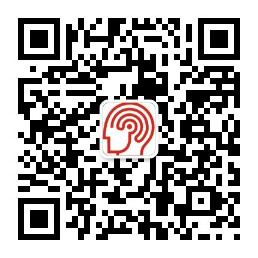学术写作中逗号的五种常见错误用法解析:传达非必要信息时,未使用逗号、使用逗号传达必要信息、连接两个独立子句时,需在并列关联词前面加上逗号、引导词/语后方未加上逗号、逗号拼接句(comma splice)。艾思学术整理如下,内容仅供参考:
1. 传达非必要信息时,未使用逗号
逗号可被用于插入补充的非必要信息。所谓非必要信息,即指若忽略插入的信息,句子仍完整且意思保持不变,那么此时逗号提供的是补充信息,而不是必要信息。
【例句】
不正确用法:
Kathy Chen who won the writing contest is in my class.
正确用法:
Kathy Chen, who won the writing contest, is in my class.
句中必须使用逗号,因为who won the writing contest是用来额外补充关于Kathy Chen的非必要信息。
2. 使用逗号传达必要信息
若某个信息是插入信息,但却是确保句意完整的必要信息,则不得使用逗号来隔开这一补充信息。
【例句】
不正确用法:
The student, who won the writing contest, is in my class.
正确用法:
The student who won the writing contest is in my class.
这里不可使用逗号来隔开who won the writing contest,因为是特指won the writing contest的student,而非任意一个student。
3. 连接两个独立子句时,需在并列关联词前面加上逗号
若使用并列关联词来连接两个独立子句,应在并列关联词前方加上逗号。并列关联词如for、and、nor、but、or、yet、so。
【例句】
不正确用法:
I wanted to go to the beach but I couldn’t afford to pay for a hotel room.
正确用法一:
I wanted to go to the beach, but I couldn’t afford to pay for a hotel room.
本句中I wanted to go to the beach与I couldn’t afford to pay for a hotel room皆是完整的独立子句,因此使用并列关联词来连接这两个子句时,关联词前面必须加上逗号。
正确用法二:
I wanted to go to the beach but couldn’t afford to pay for a hotel room.
本句中I wanted to go to the beach是完整的独立句子,但couldn’t afford to pay for a hotel room则不是,因此使用并列关联词来连接两者时,关联词前面不须加上逗号。
4. 引导词/语后方未加上逗号
逗号也出现在句子引导词后,以引导之后的句子内容。
【例句一】
不正确用法:
Furthermore everyone must wait thirty minutes after eating before they go swimming.
正确用法一:
Furthermore, everyone must wait thirty minutes after eating before they go swimming.
(Furthermore是引导开场词,后方应加上逗号。)
正确用法:
From his position in the top of the tree, John could see the neighbor’s dog chewing on the children’s missing Frisbee.
(From his position in the top of the tree为引导介词短语,后方应加上逗号。)
【例句二】
不正确用法:
Risking his life over a Frisbee, just didn’t seem worth it.
(Risking his life over a Frisbee是句子主词,后方不应加上逗号。)
正确用法:
Even though he knew that his brother would be angry over the lost Frisbee, John wasn’t brave enough to go get it.
(Even though he knew that his brother would be angry over the lost Frisbee为引导句,后方应加上逗号。)
5. 逗号拼接句(comma splice)
连接两个独立子句时,若使用的是逗号,而不是句号或分号,便是犯了逗号拼接句的错误。使用转折、因果等关联词如 however、therefore、moreover、nevertheless、furthermore时,最容易犯下逗号拼接句的错误。这类关联词不同于并列关联词(如for、and、nor、or、but、yet、so),须使用句号或分号同前面的句子隔开。
【例句】
不正确用法:I had planned to enroll over the summer, however, I couldn’t find any classes to fulfill my major requirements.
正确用法一:I had planned to enroll over the summer; however, I couldn’t find any classes to fulfill my major requirements.
(作为转折关联词,however前需使用分号来连接两个独立子句。)
正确用法二:I had planned to enroll over the summer, but I couldn’t find any classes to fulfill my major requirements.
(But是并列关联词,因此可以使用逗号来连接两个独立子句。)
[免责声明]如需转载请注明原创来源;本站部分文章和图片来源网络编辑,如存在版权问题请发送邮件至398879136@qq.com,我们会在3个工作日内处理。非原创标注的文章,观点仅代表作者本人,不代表轻创立场。
轻创CRM智能客户管理系统是一款全面而高效的客户关系管理工具,专门设计用于帮助企业更好地管理他们的客户资源和业务关系。该系统结合了强大的客户关系管理功能与先进的智能化技术,旨在提升客户满意度和忠诚度,从而实现更高的业务效益。












